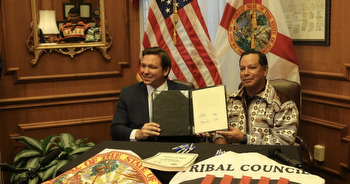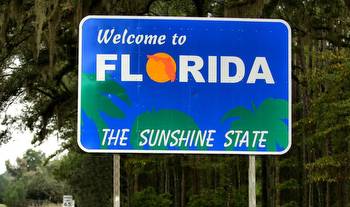Florida Ruling May Benefit Online Casino Hopes In Certain States

Back in May, during a panel discussion at the SBC Summit North America in New Jersey, FanDuel’s vice president of strategic partnerships, Frank Sizemore, remarked that California’s state budget deficit was “$30 to $40 billion” and that “sports wagering is not going to cure that.”
“No, but iGaming will,” deadpanned the panel’s moderator, Jason “Wolf” Rosenberg, the CEO and founder of American iGaming Solutions.
This was, of course, before the Supreme Court of the United States declined to hear the parimutuel company West Flagler’s case seeking to invalidate the Seminole Tribe’s hub-and-spoke model, which has thus far given the tribe and its Hard Rock platform a monopoly on sports betting in Florida. As affirmed by lower courts, the tribe has successfully argued that as long as a betting server is located on tribal grounds, mobile wagers from anywhere in the state are fair game, whereas West Flagler unconvincingly asserted that such bets must be physically placed on tribal property.
In light of SCOTUS’s decision, veteran tribal attorney Scott Cromwell said during a recent edition of the Indian Gaming Association’s (IGA’s) New Normal webcast that it may now be possible for states where tribes have “substantial exclusivity” over gaming to implement mobile sports betting on a wider scale under the Indian Gaming Regulatory Act (IGRA), instead of being beholden to a given state.
Cromwell and his fellow webinar participants mentioned California, Oregon, New Mexico, Wisconsin, Washington, and Minnesota as states where IGRA could be forcefully applied, but in places like Arizona, where tribes have already agreed to allow commercial operators to take a significant piece of the sports betting pie, Cromwell said, “You might not be able to put the genie back in the bottle.”
That brings us back to iGaming. While New Normal host and Pechanga.net operator Victor Rocha agreed with Cromwell that tribes in places like Arizona “will be trapped under that [state] model for awhile,” he added that they could pursue a path to legalizing online casino gaming that would instead fall under IGRA’s jurisdiction. The Act, said IGA Executive Director Jason Giles, “allows tribes to have as much betting as a state has authorized.”
“For the most part, the developments with West Flagler are a reaffirmation that IGRA is working,” added Cromwell. “This decision shows what a willing state and a willing tribe are able to do when addressing mobile wagering … [and] reinforces the validity of the Act and suppresses any attempts to amend the Act anytime soon.”





























